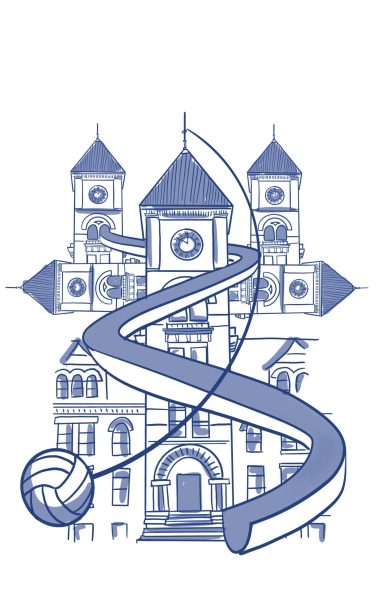The Myth of Economics
February 8, 2019
Carl Sagan said, “science is a way of thinking much more than it is a body of knowledge.” In this way, science is a human construct, and it does not exist objectively outside ourselves as we like to think. It is one method of explaining what we observe, a perspective we can choose to take, and because of our upbringings and expectations, it’s a perspective we don’t even choose. But when weighing inorganically fabricated “scientific” disciplines, modern economics must take the cake.
Modern economics (which really means “free market economics” because that’s the only model current economists are willing to accept) is the study of “choice,” they say. But it is only the study of choice within a very specific context: modern free market society. We make the choices we make because we have to. They are the only choices we were told we could make. We make them as second nature — if you don’t look closely, that looks like instinct.
And because these actions are unanalyzed on an individual level, they can be analyzed by academics who are only questioning specifics within the realm of the actions themselves, creating the illusion of objective truth. But just like how studying the science behind color won’t teach you about visual art, studying economics won’t teach you about the reality of choice. Yes, visual art must operate within the parameters of light. Likewise, human choice will tend to act within the constraints of society. To take such a small part as the whole truth is incredibly nearsighted.
Economists make unquestioned assumptions, including the assumption that maximum production and consumption is ideal for a society. An economic proverb regarding industrial production attributed to JFK but adopted by many, “a rising tide lifts all boats,” is simply false. In an introduction to economics course you learn that there is a tradeoff between efficiency and equity/equality in modern “free” market economies — in effect, the more efficient and productive an economy is, the more the quality of life of the laboring class will fall. In general, massive productivity increases cause mass immiseration. Without regulation the economy may grow, but at the expense of those who are not on top. In this way economics itself states that industrial progression works against the working class.
Adam Smith, widely known as the father of modern economics, said “science is the great antidote to the poison of enthusiasm and superstition.” Being opposed to superstition, in a materialistic society, is understandable. But being opposed to enthusiasm? Is enthusiasm detrimental to modern economies? Even this early in modern economic thinking we see signs of a fundamentally oppressive system taking shape. Enthusiasm is dangerous to the system if the system is trying to be as structured as possible, but enthusiasm is innately valuable for the person.
We value a system that doesn’t value us, and we think that’s the way it has to be, because that’s the way it is. The roots of this defeatist perspective lie in our trust in the study of economics and our worship of people like Adam Smith. Taking modern economics to be a defining fact of society, as we do, is like trusting a microscope with a cell under it to tell us all we need to know about an animal. It simply isn’t the complete picture we think it is.







